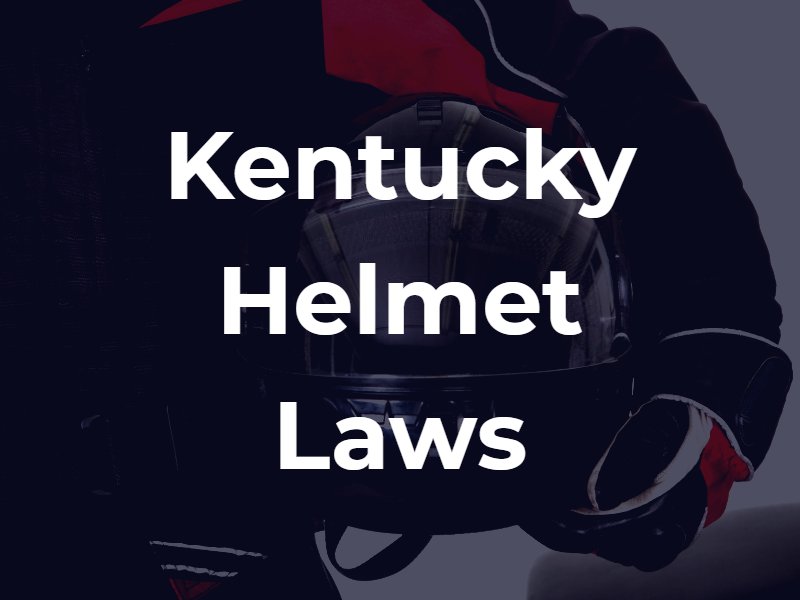injury case consultation
Available 24/7

According to information from the Kentucky Department of Transportation (DOT), there are approximately 122,000 registered motorcycles in the state. Motorcycles are popular methods of transportation, and riders should take steps to remain safe on the roadway. There is no single “universal” motorcycle helmet law in Kentucky. Rather, there are certain groups of riders that must wear a helmet. The three groups who must wear helmets when riding motorcycles in Kentucky include:
Any motorcycle operator who does not fall under those three categories is not required to wear a helmet while riding in Kentucky. The debate over helmet use for motorcyclists has been hotly debated in this state for years. Kentucky first passed a universal helmet law in 1968, but that law was amended to include only the three groups listed above in the year 2000.
The legislation also makes it clear that only registered motorcycle owners over the age of 21 are permitted to ride without a helmet. Motorcycle passengers, regardless of age, are required to wear a helmet.
Motorcycle operators and passengers who violate Kentucky’s helmet laws can face fines. Some fines can be as low as $20, but they can range anywhere from $100 to $500. These fines can increase based on the number of violations a person has received.
According to the National Highway Traffic Safety Administration (NHTSA), motorcyclists are five times more likely to be injured in a vehicle accident than occupants of traditional passenger vehicles. The NHTSA says that in states without a universal helmet law, motorcycle injuries and fatalities are much higher than in states that have a universal helmet law.
During the latest reporting year in Kentucky, the DOT says that there were 1,464 total motorcycle accidents. Out of these incidents, there were 88 motorcyclist fatalities and 1,106 motorcyclist injuries.
Motorcyclists are more vulnerable to serious injuries in the event an accident occurs, just ask our Lexington injury attorneys. It is not uncommon for a motorcycle accident victim to sustain one or more of the following:
Victims of motorcycle accidents often require extensive medical attention. These injuries can lead to costly medical bills and extended recovery periods. Accident victims may not be able to work while they recover and risk losing the income they need to support themselves and their families. This is where a Lexington accident attorney can be of help. It is important that motorcyclists and drivers of passenger vehicles alike all take steps to operate safely on the roadways. Motorcycle riders should consider wearing helmets even if Kentucky laws do not require them to do so. It could mean the difference between walking away from an accident or a permanent disability.
If you or a loved one have been involved in a motorcycle crash, speak with a Lexington motorcycle accident attorney to review your legal options and see if you are eligible to receive compensation.